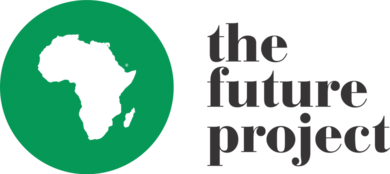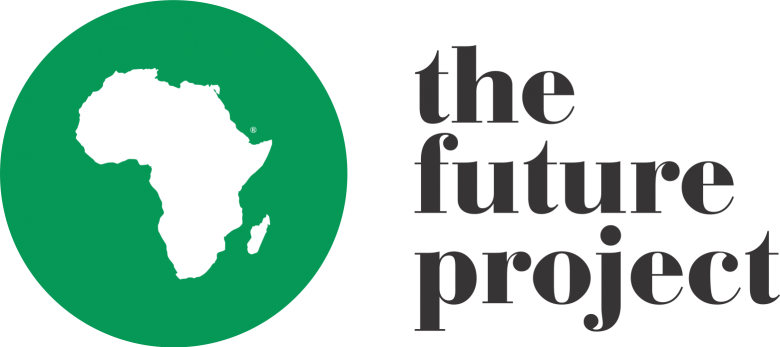Youth Development in Nigeria/Africa: The Pathway to a Sustainable Future
To a more microscopic degree, youth development in Nigeria (and Africa) is widely touted as an untapped channel to present fundamental answers to a large chunk of the challenges threatening the fulfilment of the continent’s potential.
In its race towards building a suitable life for humans on the planet, commitment to youth development is the most important decision the world could ever make. This is necessary to maximise youth potential globally and inspire them to play critical leading roles in future development.
The world is constantly evolving, with the people witnessing the dramatic progressions happening before their very eyes. Everyone is sucked in, intrigued by the direction the world is headed. But despite countless studies, documentation, postulations and innovations, no one can tell for certain.
What new innovations would further change the world? What new policies would alter the way humans live? And what would be the role of new generations to come are only a few of many unanswered questions the people seek answers to every day.
Through the collective cluelessness, however, one factor has remained constant: the evolution of man. And central to this unstoppable evolution is the growing youth population globally.

Today, there are 1.2 billion young people in the world aged 15 to 24 years, accounting for 16 per cent of the global population, according to the United Nations. Also, over half of the world’s population is estimated to be under age 30, and today’s global youth generation is the largest in history.
In Africa, recent data estimates that almost 60% of its population is under the age of 25. And with almost a billion people under the age of 35 representing 22.7% of the world’s total youth population, it is one of the leading continents with the largest youth demographic. Similar numbers describe Nigeria’s youth population, where over 33.6 million are currently aged between 15 and 35.
These numbers are critical in understanding the importance of youth development in Nigeria (and Africa) as a vehicle for shaping the future.
Franklin D. Roosevelt, the great American leader who was a central figure in historic world events during the first half of the 20th century, couldn’t have described the importance of youth to global advancement better when he said, “We cannot always build the future for our youth, but we can build our youth for the future.”
While Roosevelt made this observation over seven decades ago, effective strategies toward youth development have more than before, become a global challenge.
A 2020 Global Youth Development Index, as referenced by the Commonwealth Organisation, reveals that although the conditions of young people have improved around the world by 3.1 per cent between 2010 and 2018, the progress remains slow.
This is expected. At least 20% of all youth in the developing world are not in education, training, or employment, according to USAID. At the same time, 5 million new jobs are said to be required monthly to keep youth unemployment, which is twice the adult unemployment rate, at its current high rate.
In evaluating the situation around youth development in Nigeria (and Africa), all shreds of evidence show the challenges are even more deep-rooted. Decay in the country and continent’s socio-economic and sociopolitical landscape makes the youth susceptible to neglect with damaging consequences.
Apart from suffering poor access to quality education, high unemployment rate, and lack of representation in public office, youth in this region are largely victims of poverty, drug abuse, discrimination, conflict, and other societal vices.
It is no surprise Nigeria is ranked 161st on the 2020 Global Youth Development Index, which measures the status of young people in 181 countries around the world.
In an ideal situation, the benefits of youth development in Nigeria (and Africa) can’t be overlooked.
Youth development on the continent will enhance the status of young people and empower them to build on their competencies and capabilities to thrive in any environment. It will also enable them to contribute to a politically stable and economically viable environment, ensuring their full participation as active citizens for the continent’s betterment.
This is why, in today’s digitally transformative world where youth development in Nigeria (and Africa) has humongous benefits for young individuals and general economic growth, there is a need for more urgent strategies to harness the talents and brilliance of the young generation coming through.
To achieve this much-needed development of young people on the continent, we will weigh some key strategies to employ.
A pivotal first step will involve the deliberate address of issues facing the youth and the engagement of young people across all spheres of society in finding lasting solutions. Through this strategy, youth programming, participation and partnership in support of government or agency development objectives can be constructively and effectively achieved.
As the United Nations enunciates in its message to member nations, active engagement of youth in sustainable development efforts is central to achieving sustainable, inclusive and stable societies. With this, young people who are largely disenfranchised would feel more welcome and be more willing to play their part in national development.
Another critical strategy for consideration is the provision of access to new technological tools and a digital learning environment for young Africans, which would propel them to landmark achievements and position them as leaders in a fastly evolving digital world.
Currently, African youth’s involvement in digital transformation activities is impressive, with the creation of multi-billion tech startups and unicorns. But there’s no denying the gaps still to be filled. Compared to the rest of the world, Africa is yet to scratch the surface in the establishment of eco-friendly tech environments and institutions.
New age technology offers the continent a great opportunity to foster inclusive and sustainable growth among its young population while positioning itself to reach its potential as one of the world’s most promising economies. Considering the associated benefits, it is indeed an understatement to say it would be an unfathomable disaster for the continent to let the opportunity slip.
Perhaps the most critical factor in ensuring youth development in Nigeria (and Africa) is the involvement of young people in the unbalanced political dynamics, as nearly all decisions and policies with a life-changing impact on the citizenry are made by political leaders.
It is alarming that globally, less than 2 per cent of parliamentarians are under 30 years old, as the political landscape continues to be dominated by boomers.
In Nigeria, the Not Too Young To Run campaign remains but a farcical attempt at involving the youth in political positions, due to high entrance ceilings such as astronomical prices of party nomination forms and lack of political clout.
This necessitates an urgent need for more institutions dedicated to grooming and empowering young individuals with an interest in politics.
Opening this accessible pathway to youth involvement in politics is crucial to raising awareness of youth-related issues and the inevitable demand for actionable and practicable change. This standpoint is backed by various studies which have proven the youth as critical thinkers, change-makers, innovators, communicators, and leaders.
Interestingly, there are existing indicators of the possibility of these youth development strategies by many public and private organisations in Africa.
As a notable case study, driving real change in youth development in Nigeria (and Africa) through some of the strategies highlighted above is the Future Project. The youth-oriented project strives to build empowered citizens across Africa through inclusive enterprise and active citizenship while inspiring a network of young Africans to work together to solve the continent’s biggest and most urgent issues.
Human capital development projects embarked upon by the outfit in recent years have included a capacity-building Future Africa Internship Program where young Africans with less than two years of work experience are allowed to intern in their prospective area of expertise for deliberate career growth.
For 16 years, the noble project has also been instrumental in the celebration of young people who have challenged the status quo in their respective spheres of influence and have worked to build lifelong legacies that will transform generations for years to come.
The Future Project’s annual award ceremony, The Future Awards Africa, has grown to become a staff of validation and coveted recognition among young Africans making a life-changing impact on their community as well as the nation.
It bolsters general confidence that these initiatives in the drive towards youth development in Nigeria (and Africa) are providing a monumental base for more work to be done. And it’ll be interesting to see the offshoots in the coming years.
Conclusively, there is no better time than now to define the future of our world, and it is critical to acknowledge the importance of youth development as an integral part of that. All things fairly considered, it should be their world, and everyone else should only be living in it.
So, when leisurely chatter about the strategy required to impact a dream future for our world ensues, youth development in Nigeria (and Africa) should reign supreme. And when strategic deliberations on the actions to achieving great results are had, there should be no look beyond the template and blueprint being laid by the Future Project.
While these strategies may not represent the only angles of passage through the needle, they sure are a good place to start.











